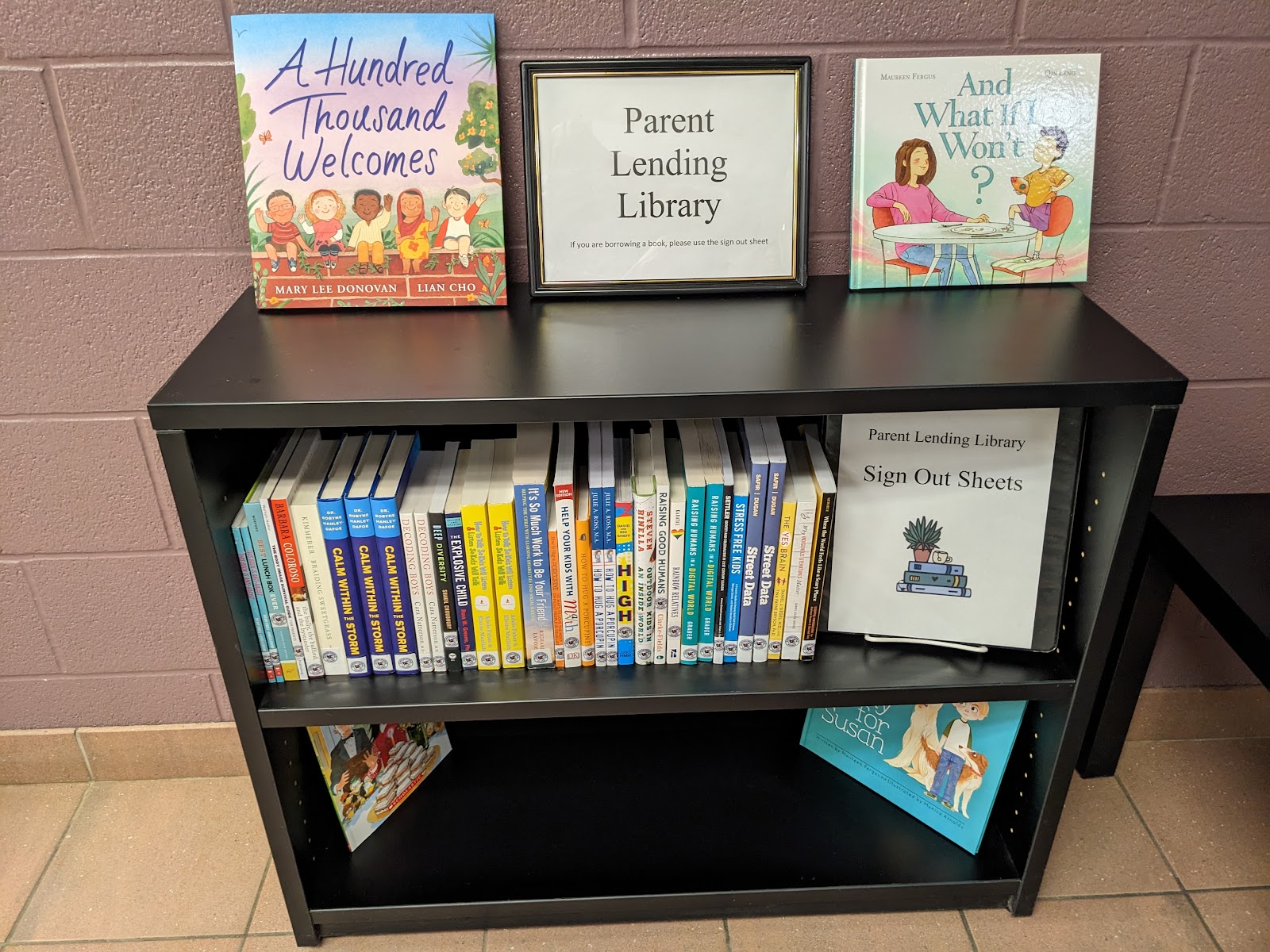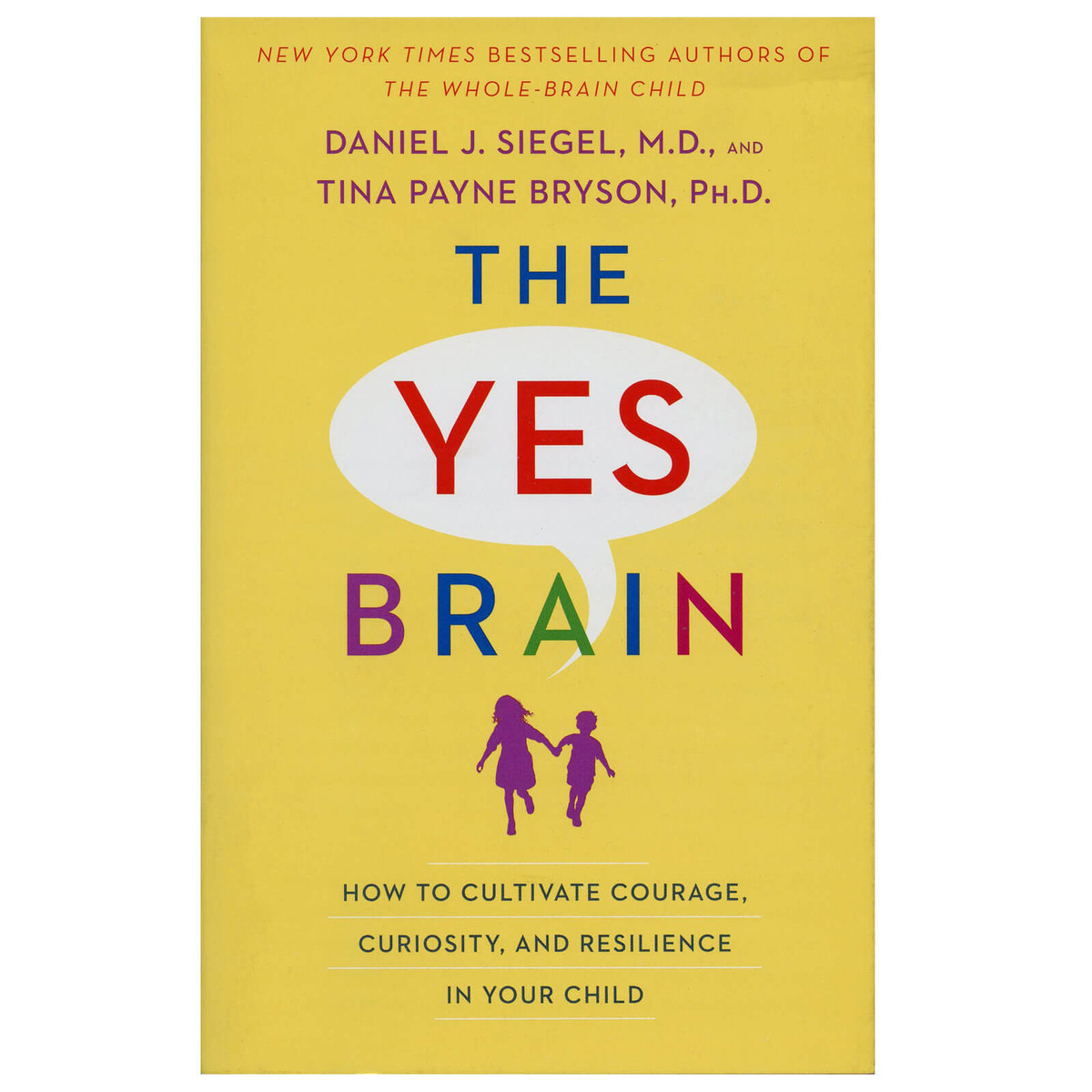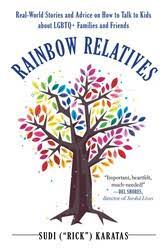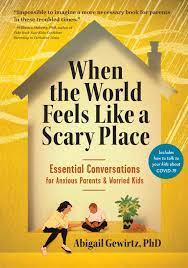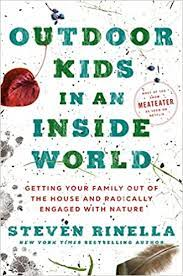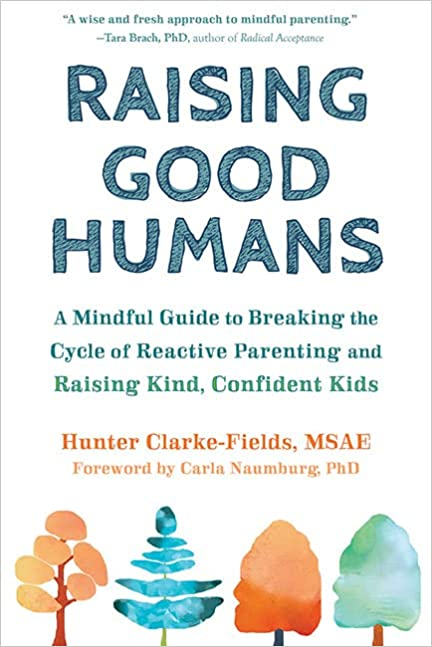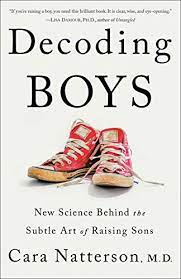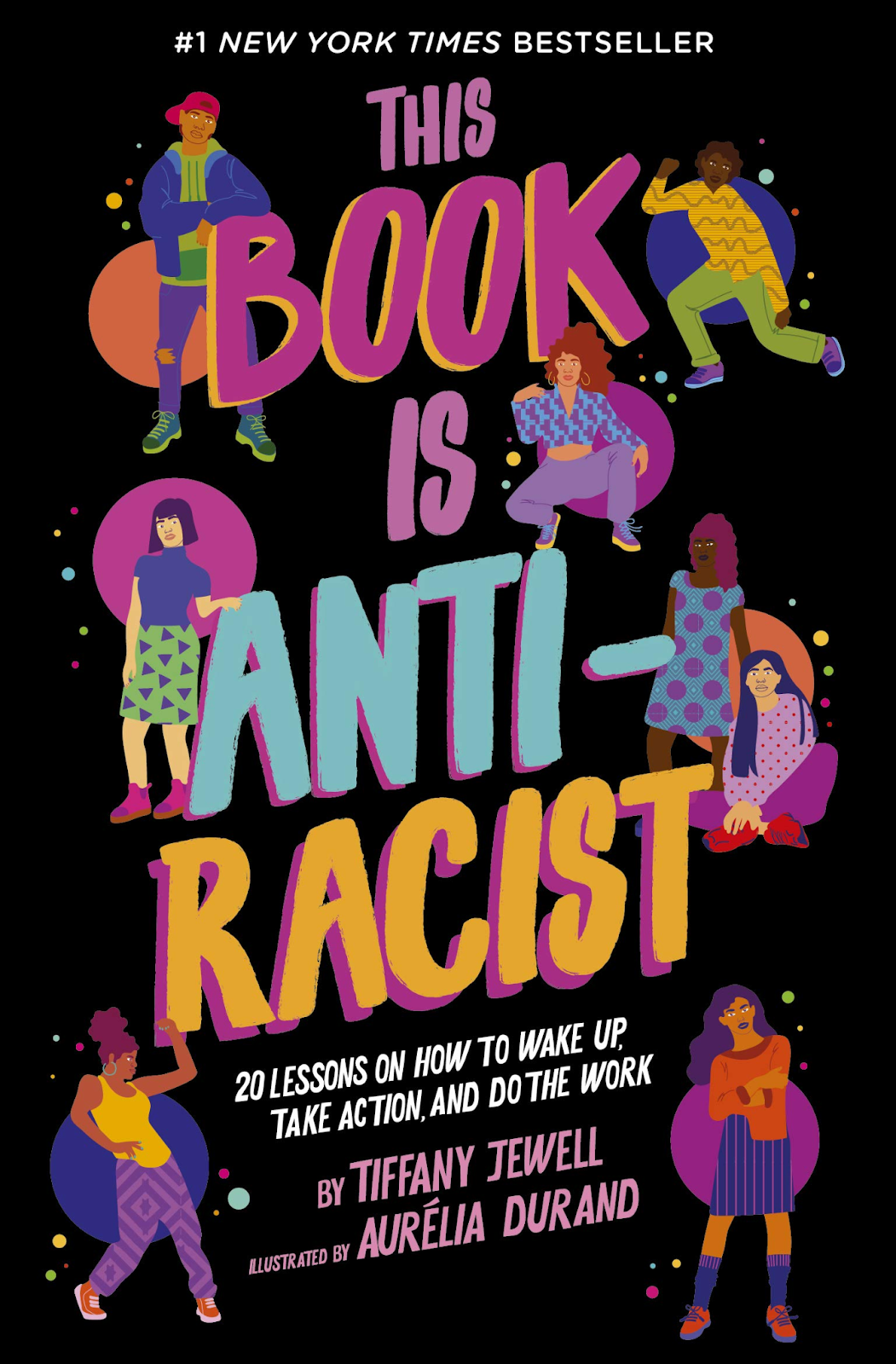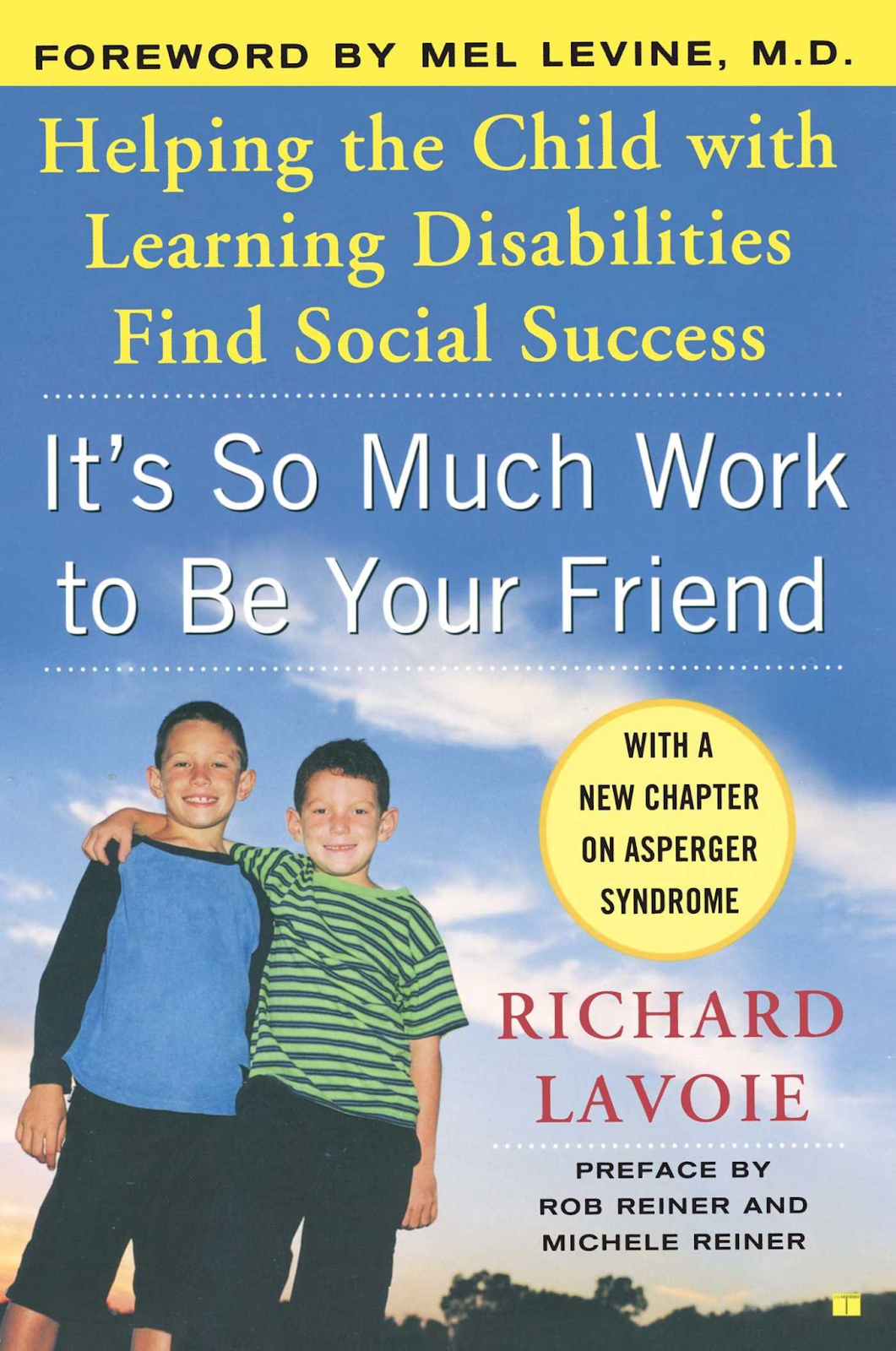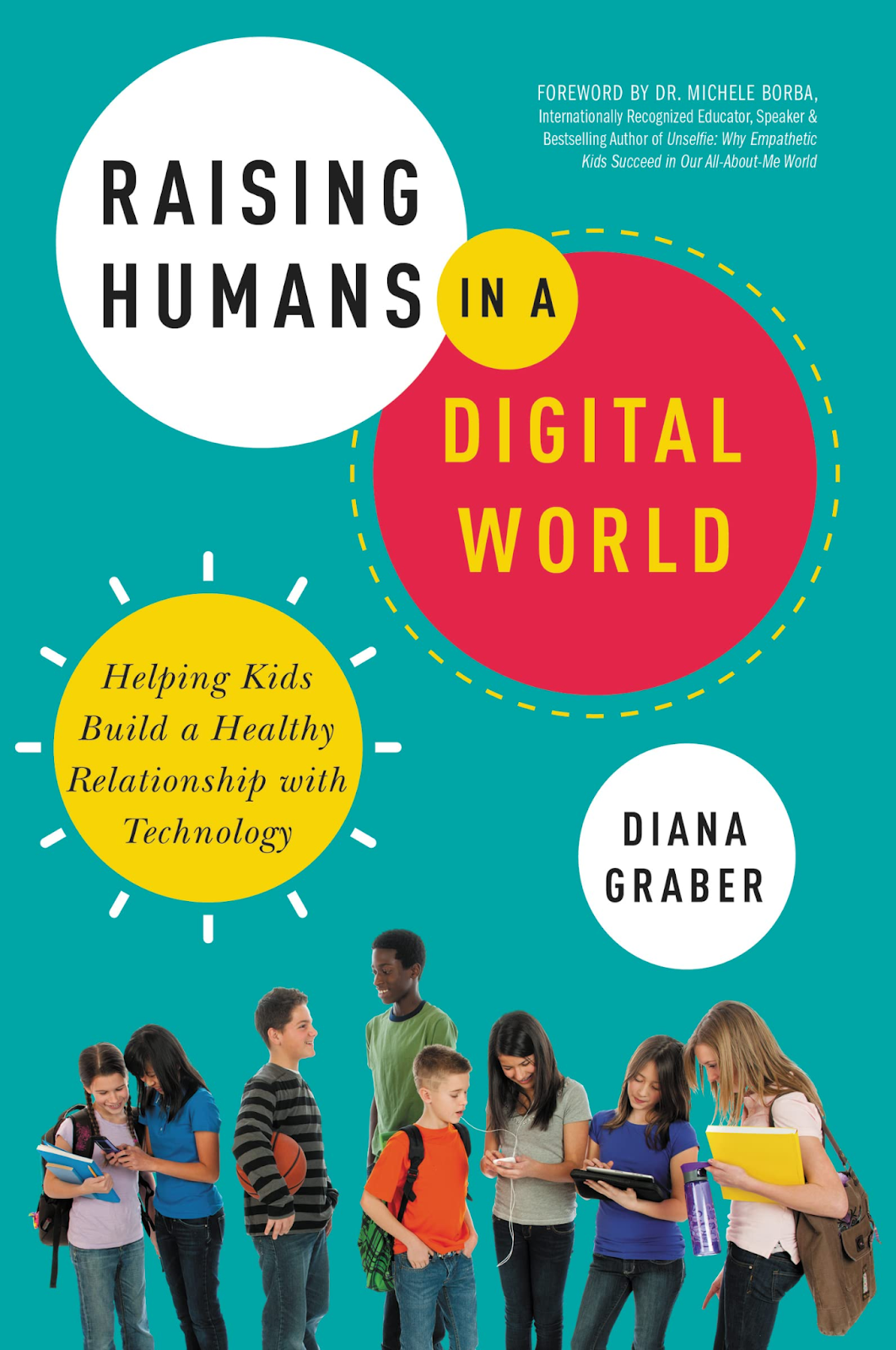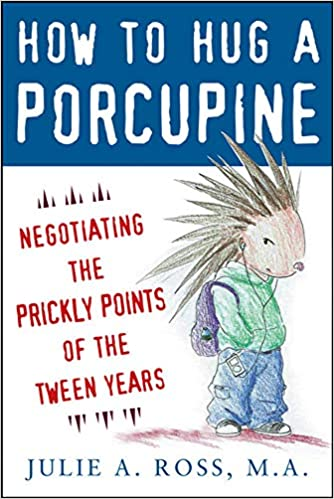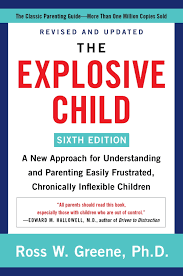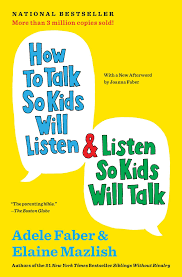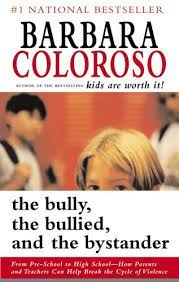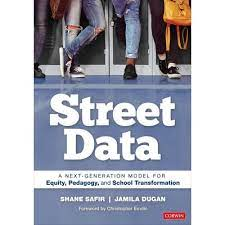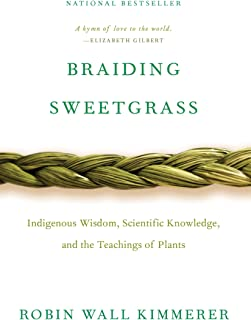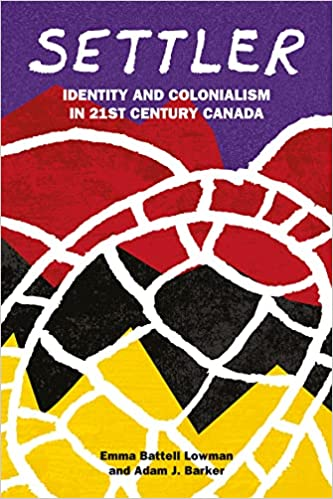SC Lending Library
SC Lending Library
To help support parent engagement, School Council has invested in a number of reference books on various topics that we felt would be helpful to Mitchell Woods parents.
Topics include: Screen time, Body image, Mental health, FNMI (First Nations, Métis, Inuit), Racism and more.
We also welcome and encourage suggestions for new books or subject matters that families would like to see offered!
Inside the Parent Lending Library sign-out binder, there will be a “suggestions page” available for you to share your ideas or make requests anonymously, or please feel free to email scmitchellwoods@gmail.com
Parent Lending Library Catalogue:
| BOOK
Title & Author |
DESCRIPTION: |
| The Yes Brain
by Daniel J. Siegel and Tina Payne Bryson |
From the authors of The Whole-Brain Child and No-Drama Discipline, an indispensable guide to unlocking your child’s innate capacity for resilience, compassion, and creativity.
When facing contentious issues such as screen time, food choices, and bedtime, children often act out or shut down, responding with reactivity instead of receptivity. This is what New York Times bestselling authors Daniel J. Siegel and Tina Payne Bryson call a No Brain response. But our kids can be taught to approach life with openness and curiosity. When kids work from a Yes Brain, they’re more willing to take chances and explore. They’re more curious and imaginative. They’re better at relationships and handling adversity. In The Yes Brain, the authors give parents skills, scripts, and activities to bring kids of all ages into the beneficial “yes” state. You’ll learn
The Yes Brain is an essential tool for nurturing positive potential and keeping your child’s inner spark glowing and growing strong. Praise for The Yes Brain “This unique and exciting book shows us how to help children embrace life with all of its challenges and thrive in the modern world. Integrating research from social development, clinical psychology, and neuroscience, it’s a veritable treasure chest of parenting insights and techniques.”—Carol S. Dweck, Ph.D., author of Mindset “I have never read a better, clearer explanation of the impact parenting can have on a child’s brain and personality.”—Michael Thompson, Ph.D. “Easily assimilated and informative, the book will help adults enable children to lead physically and emotionally satisfying and well-rounded lives filled with purpose and meaningful relationships. Edifying, easy-to-understand scientific research that shows the benefits that accrue when a child is encouraged to be inquisitive, spirited, and intrepid.”—Kirkus Reviews |
| Rainbow Relatives
Sudi (“Rick”) Karatas |
Whether you have your own questions because you’re preparing to come out to your kids, or you aren’t sure how to explain to your kids why their uncle has a boyfriend or why their friend has two mommies, this book can help. With an entertaining and educational approach to educating yourself and your peers about the issues and topics surrounding the LGBTQ+ community, Rainbow Relatives will provide answers to your kids’ questions and help you raise them to be open-minded and accepting adults.
First and foremost, this book will help you approach the conversations you need to have and predict what you can expect from them. Author Sudi Karatas tells a variety of stories, such as that of a Mormon woman’s transition from fighting against gay rights to becoming a crusader for them. Also included are the voices of filmmakers, actors, musicians, mental health professionals, and more. Through Rainbow Relatives, Karatas helps parents support, advocate for, and educate their children, relatives, and family friends. |
| When the World Feels Like a Scary Place
Abigail Gewirtz |
“A terrific book for parents who want to know how to talk about difficult, emotional issues with children.”––Nancy Eisenberg, Regents’ Professor of Psychology, Arizona State University
Includes how to talk to your kids about COVID-19. In a lifesaving guide for parents, Dr. Abigail Gewirtz shows how to use the most basic tool at your disposal––conversation––to give children real help in dealing with the worries, stress, and other negative emotions caused by problems in the world, from active shooter drills to climate change. But it’s not just how to talk to your kids, it’s also what to say: The heart of When the World Feels Like a Scary Place is a series of conversation scripts––with actual dialogue, talking points, prompts, and insightful asides––that are each age-appropriate and centered around different issues. Along the way are tips about staying calm in an anxious world; the way children react to stress, and how parents can read the signs; and how parents can make sure that their own anxiety doesn’t color the conversation. Talking and listening are essential for nurturing resilient, confident, and compassionate children. And conversation will help you manage your anxieties too, offering a path of wholeness and security for everyone in the family. “Remarkable… Compelling advice illustrated with memorable case examples.”––Ann S. Masten, PhD, Irving B. Harris Professor of Child Development, University of Minnesota |
| Stress Free Kids
Lori Lite |
Stress management solutions for you and your children!
Kids today are more stressed, overwhelmed, and struggling with anxiety than ever before. Children are not born with the coping strategies needed to navigate today’s increasing demands of technology, bullying, academics, and family dynamics. You yourself might wonder how your own stressed-out lifestyle is affecting your children. Based on Lori Lite’s award-winning series, Stress Free Kids provides relaxation techniques you can use to free your child from stress. Lite shows you how to apply breathing, visualizations, affirmations, and muscle relaxation exercises effortlessly throughout the day. These parenting solutions to everyday stressors will reduce worries and anxiety while increasing self-esteem. You and your children will gain freedom as you live a more joy-filled life with less stress. With this complete resource as your guide, your family will create your own collection of stress-free moments that add up to peace and confidence–for you and your children. |
| Deep Diversity
Shakil Choudhury |
“Shakil is a rare jewel in the work of what it means to heal, repair, and take responsibility…This book is required reading for anyone interested in building a loving, just and diverse world.”–Sensei Koshin Paley Ellison, Zen teacher & author of Wholehearted: Slow Down, Help Out, Wake Up
Racial justice without shame or blame. Road-tested tools to start making a difference today. In Deep Diversity, award-winning racial justice educator Shakil Choudhury explores the emotionally loaded topic of racism using a compassionate, scientific approach that everyone can understand-whether you are Black, Indigenous, a person of color (BIPOC), or white. With clear language and engaging stories that will appeal to readers of Brené Brown and Malcom Gladwell, Choudhury explains how and why well-intentioned people can perpetuate systems of oppression, often unconsciously. Using a trauma-informed approach that removes shame or blame, he offers us the tools to recognize, take authentic responsibility, and enact deep change. In easy-to-absorb chapters, Choudhury interweaves research into the brain and studies on human behavior with hard-won lessons from his career of helping organizations and CEOs create more inclusive environments. He models vulnerability and mistake-making, sharing examples of his own bias-missteps so readers are encouraged into their own racial justice journey without judgment. Readers will come away from the book with practical tools and an understanding of:
Traditional approaches to anti-racism overly rely on analyzing history to explain systemic discrimination, which only tells us a part of the story. What’s missing, Choudhury argues, is to understand why humans do what we do, the evolutionary impulses underlying our group-ish nature and our struggles with power, bias, and social dominance. This is why psychology and neuroscience perspectives are critical to integrate into anti-racist work, as is practicing compassion for ourselves and for others. Deep Diversity is a unique, evidence-based approach to racial justice that seeks to overcome feelings of shame that so often block our progress and prevent deep change at individual and systemic levels. Deep Diversity meets you where you’re at, regardless of your identity, class, ability, or belief system, and invites you to come along on a journey of self-discovery, social awareness, and lifelong learning. It’s only just begun. “Choudhury draws on heart-touching stories, research on the brain, and hard-won lessons from real-world interventions to offer useful strategies to know ourselves, and others better.”-New York Times-bestselling author of Buddha’s Brain, Rick Hanson |
| Outdoor Kids in an Inside World
Steven Rinella |
NEW YORK TIMES BESTSELLER • “An imperative call to action” (Nick Offerman) to get children off their screens and into nature, with tips for bonding activities that teach the importance of outside time and build tough, curious, competent kids—from the New York Times bestselling author and host of the TV series and podcast MeatEater
“A revelation for families struggling to get kids to GO OUTSIDE, or to just stop using the darn smartphone.”—Michaeleen Doucleff, PhD, New York Times bestselling author of Hunt, Gather, Parent In the era of screens and devices, the average American spends 90 percent of their time indoors, and children are no exception. Not only does this phenomenon have consequences for kids’ physical and mental health, it jeopardizes their ability to understand and engage with anything beyond the built environment. Thankfully, with the right mind-set, families can find beauty, meaning, and connection in a life lived outdoors. Here, outdoors expert Steven Rinella shares the parenting wisdom he has garnered as a father whose family has lived amid the biggest cities and wildest corners of America. Throughout, he offers practical advice for getting kids radically engaged with nature in a muddy, thrilling, hands-on way, with the ultimate goal of helping them see their own place within the natural ecosystem. No matter their location—rural, suburban, or urban—caregivers and kids will bond over activities such as:
Living an outdoor lifestyle fosters in kids an insatiable curiosity about the world around them, confidence and self-sufficiency, and, most important, a lifelong sense of stewardship of the natural world. This book helps families connect with nature—and one another—as a joyful part of everyday life. |
| High
David and Nic Sheff |
Just Say Know! With drug education for children more important than ever, this nonfiction book draws on the experiences of the NY Times bestselling father/son team of David and Nic Sheff to provide all the information teens and tweens need to know about drugs, alcohol, and addiction.
From David Sheff, author of Beautiful Boy (2008), and Nic Sheff, author of Tweak: Growing Up on Methamphetamines (2008), comes the ultimate resource for learning about the realities of drugs and alcohol for middle grade readers. This book tells it as it is, with testimonials from peers who have been there and families who have lived through the addiction of a loved one, along with the cold, hard facts about what drugs and alcohol do to our bodies. From how to navigate peer pressure to outlets for stress to the potential consequences for experimenting, Nic and David Sheff lay out the facts so that middle grade readers can educate themselves. |
| Raising Good Humans
Hunter Clarke-Fields |
“A wise and fresh approach to mindful parenting.”
—Tara Brach, author of Radical Acceptance A kinder, more compassionate world starts with kind and compassionate kids. In Raising Good Humans, you’ll find powerful and practical strategies to break free from “reactive parenting” habits and raise kind, cooperative, and confident kids. Whether you’re running late for school, trying to get your child to eat their vegetables, or dealing with an epic meltdown in the checkout line at a grocery store—being a parent is hard work! And, as parents, many of us react in times of stress without thinking—often by yelling. But what if, instead of always reacting on autopilot, you could respond thoughtfully in those moments, keep your cool, and get from A to B on time and in one piece? With this book, you’ll find powerful mindfulness skills for calming your own stress response when difficult emotions arise. You’ll also discover strategies for cultivating respectful communication, effective conflict resolution, and reflective listening. In the process, you’ll learn to examine your own unhelpful patterns and ingrained reactions that reflect the generational habits shaped by your parents, so you can break the cycle and respond to your children in more skillful ways. When children experience a parent reacting with kindness and patience, they learn to act with kindness as well—thereby altering generational patterns for a kinder, more compassionate future. With this essential guide, you’ll see how changing your own “autopilot reactions” can create a lasting positive impact, not just for your kids, but for generations to come. An essential, must-read for all parents—now more than ever. “To raise the children we hope to raise, we have to learn to become the person we hoped to be…. This wonderful book will help you handle the ride.” —KJ Dell’Antonia, author of How to Be a Happier Parent “Hunter Clarke-Fields shares her wisdom and personal experience to help parents create peaceful families.”—Joanna Faber and Julie King, coauthors of How to Talk So Little Kids Will Listen |
| Calm Within the Storm
Dr. Robyne Hanley-Dafoe |
From award-winning author Dr. Robyne Hanley-Dafoe: A tender, powerful, and achievable path to the everyday resiliency we all need to navigate the uncertainty in our lives.
An inspiring new voice in resiliency, Dr. Robyne Hanley-Dafoe believes that our modern conception of resiliency as “fighting” or being “tougher” is misguided. Learning happens when we are able to trust and feel safe; fear and shame are barriers, not facilitators, for authentic growth, acceptance, and change. In Calm Within the Storm, Dr. Robyne maps out a kinder approach to taking on the challenges of life and developing authentic self-alignment and balance.By focusing on research-informed, sustainable, and achievable personal development practices, Dr. Robyne presents a new, attainable model for everyday resiliency – one that everyone can use to feel more grounded and capable. She identifies the obstacles that derail us and keep us stuck, and shows us how to enact our resiliency through stories, research, and practical strategies. |
| Decoding Boys
Cara Natterson, M.D. |
“If you’re raising a boy, you need this brilliant book. It is clear, wise, and eye-opening.” —Lisa Damour, Ph.D., author of Untangled
When boys enter puberty, they tend to get quiet—or at least quieter than before—and parents often misread their signals. Here’s how to navigate their retreat and steer them through this confusing passage, by the bestsellingauthor of The Care and Keeping of You series and Guy Stuff: The Body Book for Boys. What is my son doing behind his constantly closed door? What’s with his curt responses, impulsiveness, newfound obsession with gaming, and . . . that funky smell? As pediatrician and mother of two teenagers Cara Natterson explains, puberty starts in boys long before any visible signs appear, and that causes confusion about their changing temperaments for boys and parents alike. Often, they also grow quieter as they grow taller, which leads to less parent-child communication. But, as Natterson warns in Decoding Boys, we respect their increasing “need” for privacy, monosyllabic conversations, and alone time at their peril. Explaining how modern culture mixes badly with male adolescent biology, Natterson offers science, strategies, scripts, and tips for getting it right:
Decoding Boys is a powerful and validating lifeline, a book that will help today’s parents keep their sons safe, healthy, and resilient, as well as ensure they will become emotionally secure young men. “Comforting . . . a common-sensical and gently humorous exploration of male puberty’s many trials.”—Kirkus Reviews |
| Best Lunch Box Ever
Katie Sullivan Morford |
Best Lunch Box Ever is full of recipes, ideas, and strategies for packing creative and healthful lunches for kids, solving what is for many parents the most taxing of daily chores. Kids will love the scrumptiousness, while busy moms and dads will appreciate the quick and simple solutions for wholesome, balanced meals developed by Katie Sullivan Morford, a registered dietician and mother of three. The 65 recipes are easy, delicious, and—best of all—packed with nutrients for well-rounded lunches and snacks, including Deconstructed Caprese Skewers, Easy Cheesy Thermos Beans, Pesto Pita Pizza, Cinnamon Wonton Crisps, Parmesan Kale Chips, Crispy Applewiches, and more. |
| Help Your Kids with Math
Barry Lewis |
After its publication in 2010, Help Your Kids with Math quickly climbed to the top of DK’s bestseller charts. Families were hungry for meaningful math help-not Internet searches and hours of family frustration. The simple, visual approach of Help Your Kids with Math was exactly what parents needed to understand and explain the concepts children use most in grades 3 through 6.
Covering everything from basic arithmetic to the more complex subjects of statistics, geometry, and algebra Help Your Kids with Math uses bright, easy to understand visuals and thoughtful explanations to cut through the confusion. DK’s acclaimed designers and editors have taken expert explanations and advice and made them appealing to children-and understandable for parents. This newly updated edition includes even more content for parents and their children on challenging topics like fractions, times tables, telling time, and Roman numerals. |
| The Body Image Survival Guide for Parents
Marci Warhaft-Nadler |
“A must-have resource to break the chain of self-loathing and shame.” –Emme, supermodel, body image advocate (EmmeNation)
“What do I tell my daughter when she asks me if she’s fat?” “Why does my nine-year-old son want six-pack abs?” “How can I tell if my child has an eating disorder?” “What can I do to make sure my child is getting the healthiest messages at home?” Marci Warhaft-Nadler tackles the tough questions that you and your kids face as they negotiate aspects of body image and self-esteem in a world filled with adverse messages. With over two decades of experience on both sides of the fitness industry and herself a survivor of an eating disorder, she speaks from the heart with straight-forward and savvy advice. Understanding the challenges is the first step; learning the tools needed to empower kids to tune out the negative messages and tune in to their own incredible potential is the next. Hands-on tips and activities, real questions and answers, helpful Internet resources, and warning signs of dangerous behavior make this book the ultimate body image guide for parents of kids of all ages. For anyone and everyone who loves a young person who is struggling with low self-esteem, ‘The Body Image Survival Guide’ is indispensable. With tremendous compassion and insight, Marci Warhaft-Nadler equips parents to take action and make a tangible, enduring difference in their children’s lives. We all want to help our kids feel better about their bodies; this book is the perfect manual to help us do just that.” –Hugo Schwyzer, Ph.D., Professor of Gender Studies, Pasadena City College A must-read for anyone struggling with weight control and body image issues of any kind!! While weight loss centers, extreme diets, TV diet doctors, negative media and the internet may all have caused a great deal of confusion about the way we should look, this book provides realistic and meaningful solutions. I want all my patients to read this before they start any ‘diet,’ health or wellness program.”–Zoltan P. Rona, M.D., M.Sc., author of “Vitamin D, The Sunshine Vitamin” “Kids ask tough questions – particularly when it comes to body image, bullying and self-esteem — and Warhaft-Nadler does not shrink from a single one of them. The scenario-based question-and-answer format makes THE BODY IMAGE SURVIVAL GUIDE a parents’ go-to reference at all stages of their children’s development.” –Sandra E. Martin, Today’s Parent magazine, editor |
| This Book is Anti-Racist
Tiffany Jewell |
#1 NEW YORK TIMES BESTSELLER
Recommended by Oprah’s Book Club, ESSENCE, We Need Diverse Books, ellentube, Brit + Co, PureWow, Teen Vogue, Time, New York, USA TODAY, and TODAY.com Also available: This Book Is Anti-Racist Journal, a guided journal with more than 50 activities to support your anti-racism journey Who are you? What is racism? Where does it come from? Why does it exist? What can you do to disrupt it? Learn about social identities, the history of racism and resistance against it, and how you can use your anti-racist lens and voice to move the world toward equity and liberation. “In a racist society, it’s not enough to be non-racist—we must be ANTI-RACIST.” —Angela Davis Gain a deeper understanding of your anti-racist self as you progress through 20 chapters that spark introspection, reveal the origins of racism that we are still experiencing, and give you the courage and power to undo it. Each lesson builds on the previous one as you learn more about yourself and racial oppression. An activity at the end of every chapter gets you thinking and helps you grow with the knowledge. All you need is a pen and paper. Author Tiffany Jewell, an anti-bias, anti-racist educator and activist, builds solidarity beginning with the language she chooses—using gender neutral words to honor everyone who reads the book. Illustrator Aurélia Durand brings the stories and characters to life with kaleidoscopic vibrancy. After examining the concepts of social identity, race, ethnicity, and racism, learn about some of the ways people of different races have been oppressed, from indigenous Americans and Australians being sent to boarding school to be “civilized” to a generation of Caribbean immigrants once welcomed to the UK being threatened with deportation by strict immigration laws. Find hope in stories of strength, love, joy, and revolution that are part of our history, too, with such figures as the former slave Toussaint Louverture, who led a rebellion against white planters that eventually led to Haiti’s independence, and Yuri Kochiyama, who, after spending time in an internment camp for Japanese Americans during WWII, dedicated her life to supporting political prisoners and advocating reparations for those wrongfully interned. Learn language and phrases to interrupt and disrupt racism. So, when you hear a microaggression or racial slur, you’ll know how to act next time. This book is written for EVERYONE who lives in this racialized society—including the young person who doesn’t know how to speak up to the racist adults in their life, the kid who has lost themself at times trying to fit into the dominant culture, the children who have been harmed (physically and emotionally) because no one stood up for them or they couldn’t stand up for themselves, and also for their families, teachers, and administrators. With this book, be empowered to actively defy racism and xenophobia to create a community (large and small) that truly honors everyone. |
| It’s So Much Work to Be Your Friend
Richard Lavoie |
Answers the most intense need of parents, teachers, and caregivers of learning disabled children — or anyone who knows a child who needs a friend.
ADHD • Anxiety • Nonverbal • Communication • Disorders • Visual/Spatial • Disorders • Executive Functioning Difficulties As any parent, teacher, coach, or caregiver of a learning disabled child knows, every learning disability has a social component. The ADD child constantly interrupts and doesn’t follow directions. The child with visual-spatial issues loses his belongings. The child with a nonverbal communication disorder fails to gesture when she talks. These children are socially out of step with their peers, and often they are ridiculed or ostracized for their differences. A successful social life is immeasurably important to a child’s happiness, health, and development, but until now, no book has provided practical, expert advice on helping learning disabled children achieve social success. For more than thirty years, Richard Lavoie has lived with and taught learning disabled children. His bestselling videos and sellout lectures and workshops have made him one of the most respected experts in the field. Rick’s pioneering techniques and practical strategies can help children ages six to seventeen:
It’s So Much Work to Be Your Friend answers the most intense need of parents, teachers, and caregivers of learning disabled children — or anyone who knows a child who needs a friend. |
| Raising Humans in a Digital World
Diana Graber |
The Internet can be a scary, dangerous place especially for children. This book shows parents how to help digital kids navigate this environment.
Sexting, cyberbullying, revenge porn, online predators…all of these potential threats can tempt parents to snatch the smartphone or tablet out of their children’s hands. While avoidance might eliminate the dangers, that approach also means your child misses out on technology’s many benefits and opportunities. In Raising Humans in a Digital World, digital literacy educator Diana Graber shows how children must learn to handle the digital space through:
Raising Humans in a Digital World is packed with at-home discussion topics and enjoyable activities that any busy family can slip into their daily routine. Full of practical tips grounded in academic research and hands-on experience, today’s parents finally have what they’ve been waiting for—a guide to raising digital kids who will become the positive and successful leaders our world desperately needs. |
| How to Hug a Porcupine
Julie A. Ross |
“You never listen to anything I say!”
Yesterday, your child was a sweet, well-adjusted eight-year-old. Today, a moody, disrespectful twelve-year-old. What happened? And more important, how do you handle it? How you respond to these whirlwind changes will not only affect your child’s behavior now but will determine how he or she turns out later. Julie A. Ross, executive director of Parenting Horizons, shows you exactly what’s going on with your child and provides all the tools you need to correctly handle even the prickliest tween porcupine.
“This excellent book lets parents peek into the underlying, confusing thoughts and perplexing decisions that young tweens are constantly facing.” –Ralph I. López, M.D., Clinical Professor or Pediatrics, Cornell University, and author of The Teen Health Book |
| The Explosive Child (6th Edition)
Ross W. Greene |
Now in a revised and updated 6th edition, the groundbreaking, research-based approach to understanding and parenting children who frequently exhibit severe fits of temper and other challenging behaviors, from a distinguished clinician and pioneer in the field.
What’s an explosive child? A child who responds to routine problems with extreme frustration—crying, screaming, swearing, kicking, hitting, biting, spitting, destroying property, and worse. A child whose frequent, severe outbursts leave his or her parents feeling frustrated, scared, worried, and desperate for help. Most of these parents have tried everything-reasoning, explaining, punishing, sticker charts, therapy, medication—but to no avail. They can’t figure out why their child acts the way he or she does; they wonder why the strategies that work for other kids don’t work for theirs; and they don’t know what to do instead. Dr. Ross Greene, a distinguished clinician and pioneer in the treatment of kids with social, emotional, and behavioral challenges, has worked with thousands of explosive children, and he has good news: these kids aren’t attention-seeking, manipulative, or unmotivated, and their parents aren’t passive, permissive pushovers. Rather, explosive kids are lacking some crucial skills in the domains of flexibility/adaptability, frustration tolerance, and problem solving, and they require a different approach to parenting. Throughout this compassionate, insightful, and practical book, Dr. Greene provides a new conceptual framework for understanding their difficulties, based on research in the neurosciences. He explains why traditional parenting and treatment often don’t work with these children, and he describes what to do instead. Instead of relying on rewarding and punishing, Dr. Greene’s Collaborative Problem Solving model promotes working with explosive children to solve the problems that precipitate explosive episodes, and teaching these kids the skills they lack. |
| How to Talk to Kids Will Listen and Listen so Kids Will Talk
Adele Faber and Elaine Mazlish |
“This parenting book actually made me a better parent.”—Lydia Kiesling, The New York Times
From #1 New York Times bestselling authors, the ultimate “parenting bible” (The Boston Globe)—a timeless, beloved book on how to effectively communicate with your child. This bestselling classic by internationally acclaimed experts on communication between parents and children includes fresh insights and suggestions, as well as the author’s time-tested methods to solve common problems and build foundations for lasting relationships, including innovative ways to:
Enthusiastically praised by parents and professionals around the world, Faber and Mazlish’s down-to-earth, respectful approach makes relationships with children of all ages less stressful and more rewarding. |
| The Bully, The Bullied and the Bystander
Barbara Coloroso |
It’s the deadliest combination going: Bullies who get what want from their target, bullied kids who are afraid to tell, bystanders who either watch, participate, or look away, and adults who see the incidents as simply “teasing” and a normal part of childhood.
We have only to look to the headlines to understand that this is a recipe for tragedy. Some bullying victims, their cries unheard, have fought back with violence that has devastated entire communities; others have committed suicide; many more suffer in silence, their lives a constant round of emotional and physical pain. In The Bully, the Bullied, and the Bystander, Barbara Coloroso gives parents, caregivers, educators—and most of all, kids—the tools to break the cycle of violence. Drawing on her decades of work with troubled youth, and her wide experience in the areas of conflict resolution and reconciliatory justice, Coloroso offers a compassionate and practical guide that is destined to become a groundbreaking reference on the subject of bullying. |
| Street Data
Shane Safir and Jamila Dugan |
Education can be transformed if we eradicate our fixation on big data like standardized test scores as the supreme measure of equity and learning. Instead of the focus being on “fixing” and “filling” academic gaps, we must envision and rebuild the system from the student up — with classrooms, schools and systems built around students’ brilliance, cultural wealth, and intellectual potential. Street data reminds us that what is measureable is not the same as what is valuable and that data can be humanizing, liberatory and healing.
By breaking down street data fundamentals, what it is, how to gather it, and how it can complement other forms of data to guide a school or district’s equity journey, Safir and Dugan offer an actionable framework for school transformation. Written for educators and policymakers, this book: Offers fresh ideas and innovative tools to apply immediately Provides an asset-based model to help educators look for what’s right in our students and communities instead of seeking what’s wrong Explores a different application of data, from its capacity to help us diagnose root causes of inequity, to its potential to transform learning, and its power to reshape adult culture Now is the time to take an antiracist stance, interrogate our assumptions about knowledge, measurement, and what really matters when it comes to educating young people. |
| Why Indigenous Literatures Matter
Daniel Heath Justice |
Part survey of the field of Indigenous literary studies, part cultural history, and part literary polemic, Why Indigenous Literatures Matter asserts the vital significance of literary expression to the political, creative, and intellectual efforts of Indigenous peoples today.
In considering the connections between literature and lived experience, this book contemplates four key questions at the heart of Indigenous kinship traditions: How do we learn to be human? How do we become good relatives? How do we become good ancestors? How do we learn to live together? Blending personal narrative and broader historical and cultural analysis with close readings of key creative and critical texts, Justice argues that Indigenous writers engage with these questions in part to challenge settler-colonial policies and practices that have targeted Indigenous connections to land, history, family, and self. More importantly, Indigenous writers imaginatively engage the many ways that communities and individuals have sought to nurture these relationships and project them into the future. This provocative volume challenges readers to critically consider and rethink their assumptions about Indigenous literature, history, and politics while never forgetting the emotional connections of our shared humanity and the power of story to effect personal and social change. Written with a generalist reader firmly in mind, but addressing issues of interest to specialists in the field, this book welcomes new audiences to Indigenous literary studies while offering more seasoned readers a renewed appreciation for these transformative literary traditions. |
| Braiding Sweetgrass
Robin Wall Kimmerer |
A New York Times Bestseller
A Washington Post Bestseller Named a “Best Essay Collection of the Decade” by Literary Hub As a botanist, Robin Wall Kimmerer has been trained to ask questions of nature with the tools of science. As a member of the Citizen Potawatomi Nation, she embraces the notion that plants and animals are our oldest teachers. In Braiding Sweetgrass, Kimmerer brings these two lenses of knowledge together to take us on “a journey that is every bit as mythic as it is scientific, as sacred as it is historical, as clever as it is wise” (Elizabeth Gilbert). Drawing on her life as an indigenous scientist, and as a woman, Kimmerer shows how other living beings—asters and goldenrod, strawberries and squash, salamanders, algae, and sweetgrass—offer us gifts and lessons, even if we’ve forgotten how to hear their voices. In reflections that range from the creation of Turtle Island to the forces that threaten its flourishing today, she circles toward a central argument: that the awakening of ecological consciousness requires the acknowledgment and celebration of our reciprocal relationship with the rest of the living world. For only when we can hear the languages of other beings will we be capable of understanding the generosity of the earth, and learn to give our own gifts in return. |
| Settler
Emma Battell Lowman and Adam J. Barker |
Canada has never had an Indian problem?? but it does have a Settler problem. But what does it mean to be Settler? And why does it matter?
Through an engaging, and sometimes enraging, look at the relationships between Canada and Indigenous nations, Settler: Identity and Colonialism in 21st Century Canada explains what it means to be Settler and argues that accepting this identity is an important first step towards changing those relationships. Being Settler means understanding that Canada is deeply entangled in the violence of colonialism, and that this colonialism and pervasive violence continue to define contemporary political, economic and cultural life in Canada. It also means accepting our responsibility to struggle for change. Settler offers important ways forward ? ways to decolonize relationships between Settler Canadians and Indigenous peoples ? so that we can find new ways of being on the land, together. This book presents a serious challenge. It offers no easy road, and lets no one off the hook. It will unsettle, but only to help Settler people find a pathway for transformative change, one that prepares us to imagine and move towards just and beneficial relationships with Indigenous nations. And this way forward may mean leaving much of what we know as Canada behind. |



